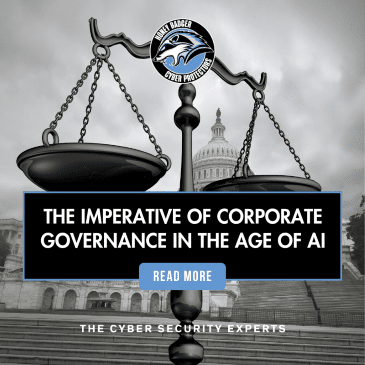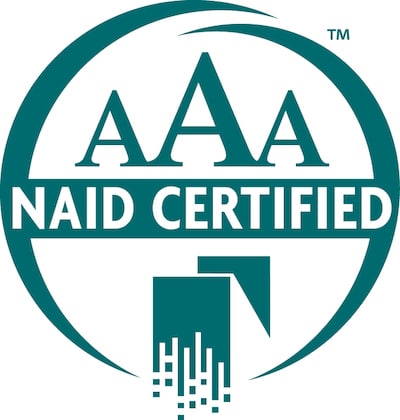The Imperative of Corporate Governance in the Age of AI
 Artificial intelligence (AI) has become a key player, revolutionizing industries with its potential for innovation, efficiency, and strategic edge. However, the advent of AI also brings a suite of risks and ethical considerations that necessitate a robust framework for corporate governance. To fully embrace the advantages of AI while addressing potential pitfalls, an effective governance strategy that ensures ethical standards, regulatory compliance, and security is required.
Artificial intelligence (AI) has become a key player, revolutionizing industries with its potential for innovation, efficiency, and strategic edge. However, the advent of AI also brings a suite of risks and ethical considerations that necessitate a robust framework for corporate governance. To fully embrace the advantages of AI while addressing potential pitfalls, an effective governance strategy that ensures ethical standards, regulatory compliance, and security is required.
Corporate governance encompasses the rules, practices, and processes by which a company is guided and controlled, touching on leadership structures, accountability mechanisms, and more. With AI’s increasing role in business operations, the demand for comprehensive governance mechanisms has intensified. AI’s ability to process extensive data sets, automate complex decisions, and influence strategic outcomes is undeniably beneficial but also poses significant risks. Ensuring AI’s deployment aligns with organizational values and ethical standards is crucial for mitigating risks related to ethics, data privacy, and security vulnerabilities.
Addressing the Key Challenges in AI Governance
Ethical Considerations:
AI’s profound impact on society and individuals necessitates ethical and unbiased decisions. Including guidelines for ethical AI development within governance frameworks addresses issues such as algorithmic bias, transparency, and accountability.
Data Privacy & Security:
Given AI systems’ reliance on vast datasets, often containing sensitive information, establishing robust governance policies to protect data privacy is essential. This involves stringent security measures and regular audits to safeguard against unauthorized access and data breaches.
Regulatory Compliance:
With AI regulations constantly evolving, organizations must stay informed and ensure their AI initiatives comply with legal and industry standards. This includes continuous monitoring and policy updates to reflect regulatory changes.
Risk Management:
AI introduces new risks across operational, financial, and reputational spheres. A well-rounded governance framework includes strategies for identifying, assessing, and mitigating these risks through scenario planning and incident response protocols.
Reaping the Benefits of Strong AI Governance
Adopting comprehensive governance for AI brings numerous advantages, such as enhancing trust and reputation through transparent and ethical practices, improving decision-making consistency, mitigating risks proactively, ensuring regulatory compliance, and achieving competitive advantage by fostering innovation within ethical boundaries.
Implementing Effective AI Governance: A Strategic Blueprint
Integrate AI Governance with Corporate Strategy:
Align AI governance with the overall business strategy to ensure AI deployment contributes to corporate objectives. Engage stakeholders to incorporate diverse perspectives into governance strategies.
Promote Transparency & Accountability:
Adopt standards for explainability in AI decisions and establish mechanisms for regular performance and compliance reporting. These practices enhance clarity and responsibility surrounding AI use.
Strengthen Ethical AI Practices:
Create ethical AI policies that outline guiding principles for respecting privacy, fairness, and human rights that are important to your organization. Implement systematic approaches to identify and mitigate biases in AI systems, including complete research, outline, and review done by employees instead of total reliance on AI.
Foster Innovation Within Compliance:
Develop regulatory sandboxes to test AI technologies under regulatory supervision but with certain flexibilities. Create innovation hubs focused on exploring AI applications within ethical and regulatory frameworks.
Cultivate Continuous Learning and Adaptation:
Encourage a culture of continuous learning and adaptability regarding AI technologies and ethical standards. Implement feedback mechanisms to realign governance practices with emerging challenges and outcomes.
By integrating these strategic steps and considerations into their governance frameworks, organizations can not only navigate the complexities of AI deployment effectively but also position themselves as leaders in responsible AI use. The goal is to forge an AI-driven ecosystem that balances innovation with responsibility, ensuring a sustainable and competitive future.
Please contact us for more information on how Reclamere can assist with AI governance and cybersecurity. Together, we can build a secure and responsible AI-enabled future.








